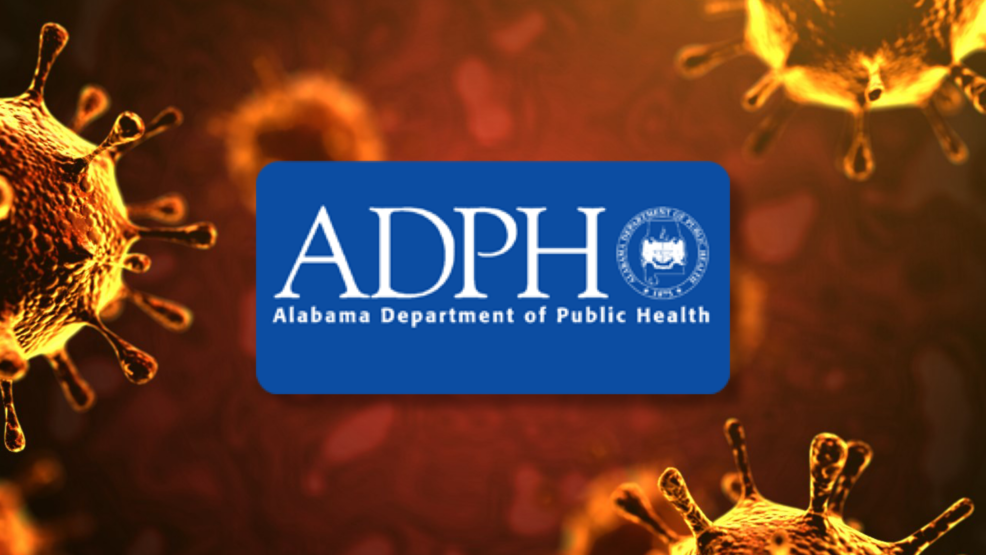 MONTGOMERY-Getting COVID-19 vaccine into the arms of Alabamians as quickly as possible is our goal.ADPH is conducting clinics daily, including drive-through clinics in some counties.
MONTGOMERY-Getting COVID-19 vaccine into the arms of Alabamians as quickly as possible is our goal.ADPH is conducting clinics daily, including drive-through clinics in some counties.COVID-19 Cases—517,916
COVID-19 Deaths—10,675
COVID-19 Hospitalizations (as of April 7)—47,873
Currently eligible for vaccine—everyone 16 years of age and older
Average 1stDoses of Vaccine Shipped to Alabama Per Week—115,000-120,000
Vaccine Doses Administered—1,926,075
Vaccine Doses Delivered to Alabama—2,963,745
Alabama Healthcare Providers Enrolled—1,278
Safer Apart Order Begins April 9 at 5:00 p.m. – ADPH Still Encourages Use of Facial Coverings
Masks or other facial coverings will no longer be a mandate after the new Safer Apart order becomes effective April 9 at 5:00 p.m. ADPH will still encourage the use of facial coverings, and reminds everyone that masks remain one of the most successful tools to help reduce the spread of COVID-19. Many businesses and healthcare facilities will continue to require facial coverings in their facilities. Hospitals and nursing homes are under federal guidance that supports the use of facial coverings, and we anticipate the requirement for facial coverings to remain in place at those facilities.
COVID-19 Funeral Assistance
As a result of the Coronavirus Response and Relief Supplemental Appropriations Act and the American Rescue Plan Act, the Federal Emergency Management Agency (FEMA) will provide financial assistance for funeral costs specifically related to COVID-19. Funeral expenses will be reimbursed up to a maximum amount of $9,000 per decedent for funeral expenses incurred after January 20, 2020. Applicants must submit all required documentation before FEMA will award funeral assistance (death certificate indicating death was caused COVID-19, proof of funeral expenses, and insurance or other funeral benefits). Beginning April 12, 2021, individuals can call FEMA at 1-844-684-6333 once they have all information and documentation ready to send. For more information, visit www.fema.gov/disasters/
Hale County National Guard COVID-19 Vaccination Clinic Rescheduled for April 15
The Hale County National Guard COVID-19 vaccination clinic that was cancelled in March due to inclement weather conditions has been rescheduled for April 15. The site will be located at the Boys and Girls Club (Old National Guard Armory), 515 Greene Street, Greensboro, AL 36744. The vaccination site will be open from 9:00 a.m. – 5:00 p.m. (CT). The Johnson & Johnson vaccine will be given at this location, which will not require a second dose at a later date.
Johnson & Johnson One-Dose Vaccine Available at National Guard Second-Dose Clinics
Second dose Alabama National Guard clinics will begin on April 13, rotating through the counties that have already been visited for Pfizer primary doses. The second dose clinics will also have 200 doses of the Johnson & Johnson vaccine available for anyone who has not received any vaccine. Johnson & Johnson is a single-dose vaccine, so no second dose clinics will be required for those who receive it.
National Guard COVID-19 Vaccination Clinic Update
The Alabama National Guard continues rotating through 24 rural counties to provide primary COVID-19 vaccinations. A total of 9,387 vaccinations have been given in under-served and rural counties throughout the state during the vaccine clinics that started on March 23. Clinic information ordered by date of first dose can be found at www.alabamapublichealth.gov/
At Least 30 Percent of 29 Alabama Counties Vaccinated
Thirty percent or more of the residents age 16 and older of 29 Alabama counties have received one or more doses of COVID-19 vaccine to date. Successful public health efforts to achieve vaccine equity have resulted in higher vaccine uptake among African American residents of Black Belt counties. Counties where 30 percent or more of their residents have been vaccinated are as follows: Bullock, Hale, Perry, Lowndes, Wilcox, Marengo, Jefferson, Tallapoosa, Conecuh, Dallas, Lee, Shelby, Greene, Macon, Colbert, Clarke, Henry, Madison, Sumter, Clay, Monroe, Chambers, Houston, Mobile, Lauderdale, Franklin, Montgomery, Choctaw and Coosa. Vaccines are one key to protecting the most vulnerable and helping stop the pandemic in Alabama. Supply remains an issue, as there is not yet enough vaccine available for everyone who would like to be vaccinated.
COVID-19 Vaccine Age Requirements – Only Pfizer Vaccine Currently Authorized for Ages 16-18
As vaccine eligibility expanded on April 5 to include all Alabamians 16 and older, it is important to note that Pfizer has the only COVID-19 vaccine currently approved for persons age 16-17. Currently, our county health departments are giving the Moderna vaccine. Other providers, such as hospitals and some pharmacies, are administering the Pfizer and Johnson & Johnson vaccine. The Johnson & Johnson and Moderna vaccines are currently not authorized for those under 18 years of age. If you are 16 or 17 years of age, please be sure to check which vaccine the provider is offering before scheduling your appointment. Vaccine can be searched by brand at www.vaccinefinder.org. ADPH is working to include county health departments on the Vaccine Finder website, and encourages all vaccine providers in the state to add the information for their facilities.
Alabama Continues to Prioritize Vulnerable Populations
When Alabama allocates vaccine doses, a prime consideration is reaching those who are most vulnerable if exposed to the virus. The Alabama Department of Public Health (ADPH) targets our most vulnerable citizens for COVID-19 vaccinations. ADPH uses the CDC Social Vulnerability Index to help ensure those people living in the more disadvantaged counties are covered, yet some barriers remain. These include lack of transportation, inability to complete forms, and difficulty in locating vaccination sites. ADPH is working with community groups to assist those who wish to be vaccinated but are having problems with access.
Media Release/ Alabama Department of Public Health


